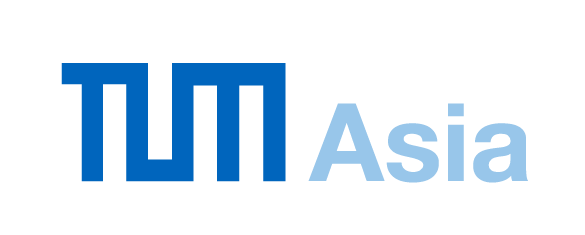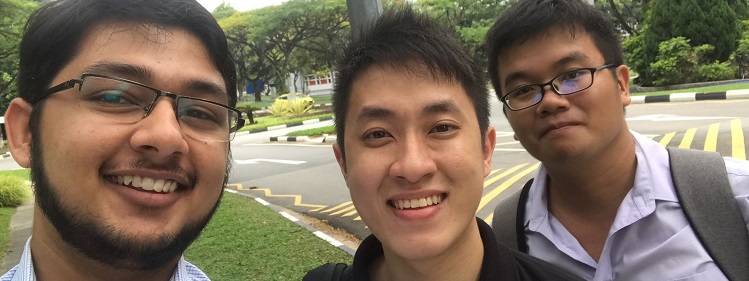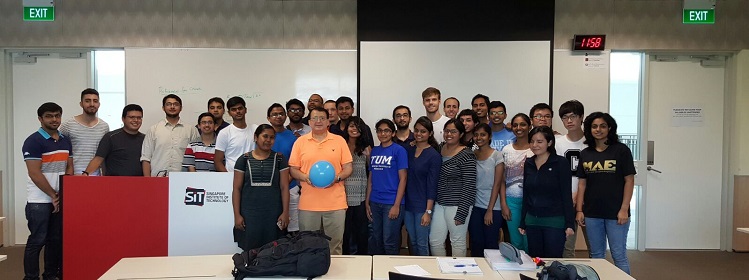Q: Hi Wee Boon, will you give our readers a brief introduction of yourself?
Wee Boon: I am Wee Boon from Singapore and I completed my Bachelor Degree in Aerospace Engineering around 7 years ago and went into teaching as the aviation industry back then was dominated by MRO, which was not my area of interest. Subsequently, I decided to consider a career switch back into Aerospace R&D for the unique challenges and passion for aviation. Since I cannot possibly retake the undergraduate studies again, the next best option was to enrol myself in a Masters programme for Aerospace Engineering to refresh my knowledge and prepare myself for the career switch.
Q: How did you start preparing for your graduate studies?
Wee Boon: As it had been quite a while and I was working in a totally different field – teaching languages and science to students – I had forgotten most of what I learnt in my undergraduate days. I had already discarded most of the materials from my undergraduate days, so my preparation was mostly limited to getting myself up to date on the current state of technology in Aerospace Engineering by doing some light reading and watching documentaries related to Aerospace Engineering.
Q: Where were your biggest fears when preparing to start your graduate studies, and how did you tackle them?
Wee Boon: The biggest fear I had was not being able to understand the content of the lessons because it had been quite a while since I last studied Aerospace Engineering extensively. On top of that, the students who took up the Masters course mostly came directly from their Bachelor degrees and were primed well for more advanced topics, so I was pretty worried that I could not follow the lessons.
However, the professors from NTU and TUM had prepared well for students from diverse backgrounds, so they would usually spend the first few lessons going through the foundations required for the module and laying the groundwork so that students taking the module would start from the same level of understanding. There were students with different undergraduate backgrounds such as Mechanical Engineering, so it definitely made sense to have a good foundation laid out. Although there was a need to put in more work compared to other students who already had the fundamentals, it was not a difficult hurdle to overcome. On top of that, the professors were very willing to point us in the correct direction to read up or explain again for the more difficult concepts if we had any difficulties.
Q: As a career-man returning to the University, what advice do you have for others considering the same path?
Wee Boon: I would tell them to make it a point to understand the content after each lesson, especially those that are taught in consecutive days. Without understanding the content taught in the previous day, the snowball effect from the things you do not understand can get out of hand very quickly. For students who are not from an aerospace background or are joining this programme after a lengthy period away from school, I recommend dedicating the first three days of the intensive modules to understanding the foundational concepts. This is so that you will not be caught flat-footed by new content in subsequent days that hinges on the understanding of the basic concepts.
You should also talk to the professors to find out their research interests, as they are mostly engaged in cutting-edge research that gives an insight into the forefront of Aerospace Engineering developments. It may or may not be included in their lectures, but most of them are very willing to share and tell you more about the newest developments in the field they are in. On top of that, there might be internship or thesis opportunities that you can join. Do start early so you will have time to refine what you want to get out of internship and thesis opportunities over the course of a few semesters.
Q: Now that you are in your final semester, tell us about your Master internship and thesis.
Wee Boon: I will be doing my Masters internship and thesis in aerodynamics flow visualization at NTU in Singapore. It was an experimental research skill that I’ve always wanted to pick up and I am very thankful for the opportunity under the support of the NTU-TUM joint Aerospace Engineering programme. I am looking forward to the opportunity to return to my interest in Aerospace R&D.
—
Wee Boon is a student in the joint TUM-NTU Master of Science in Aerospace Engineering programme. More information about the programme here >>



